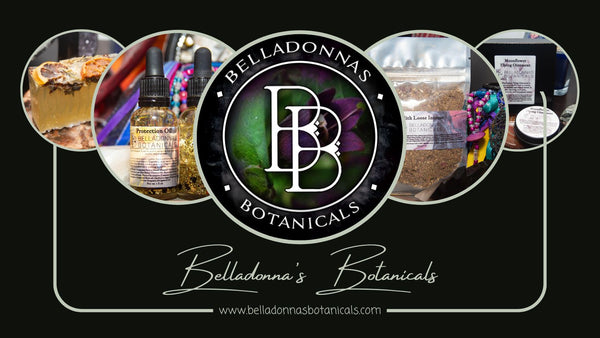So what's the deal with ingesting essential oils? Is it safe? A friend linked me to a post in Eden's Gardens Facebook page about this topic and I thought to share my response on the subject matter and perhaps expound upon it further. I am a certified aromatherapist and have completed my coursework in French Aromatherapy. I also completed the Essential Oil Safety Masterclass through the Tisserand Institute and we covered safety concerns with ingestion as well.
Outside of French Aromatherapy, which includes ingestion, inhalation, and dermal application of essential oils and herbs, the practice of ingesting essential oils is fraught with many differing opinions within the aromatherapy field and many are adamantly against it. In France, some essential oils for ingestion are only available by prescription only.
That said, my advice is that you should not ingest essential oils without knowing the particular safety precautions and contraindications for each oil as some like Cinnamon Bark can interact with diabetes medication and others should not be used if you are on anticoagulant medication. It is also crucial to know the daily maximum doses for each oil as some are fine to ingest, but only in very small doses. There are some oils that should never be ingested as well. In addition, the dosage should be based on body weight while also factoring age and any internal health conditions that may be present. Everyone is different, and just arbitrarily taking X drops of a combination of oils in a capsule or water (see below for more information on water and oils in particular) because someone shared a recipe that they got from somewhere is not advised.
The primary safety concern with ingestion is that you could have an internal reaction without knowing whereas in dermal application you can tell if your skin becomes irritated or inflamed. Most reactions to internal use of essential oils will probably involve nausea and vomiting, but some can have neurotoxic or hepatotoxic effects, which may be harder to ascertain.
As a matter of information sharing when it comes to interactions with prescription medication is that oils high in Citral, Methyl salicylate, and alpha-Bisabolol and Chamazulene provide the highest risk factors. This includes, for example:
Citral: Lemongrass, May Chang, Honey Myrtle, Lemon Myrtle, and Lemon-scented Tea Tree
Methyl salicylate: Sweet Birch and Wintergreen
alpha-Bisabolol and Chamazulene: Balsam Poplar, German Chamomile, Blue Tansy, and Yarrow.
[Source: The Tisserand Institute]
The main problem I see coming from people ingesting essential oils is that a lot of people do not know the proper methodology in using excipients* to disperse the oils because essential oils by themselves are not water soluble. For instance, putting a couple drops of lemon oil in your water is pointless because it is just going to float at the top of the surface and never disperse fully throughout the water. It doesn't necessarily pose a safety concern though it could burn your throat. The same thing goes for tea, in which case, it is recommended to first blend the oils with honey or syrup and then add it to the tea. There are many substances that work as dispersants for essential oils. I have a product called Solubol which works well for this. The French also use neutral tablets moreso than gel capsules, but unfortunately the tablets aren't available in the US. Though, you could use the homeopathic blank tablets instead.
*Excipients include: solubol, honey, alcohol, gelatin capsules, herbal tinctures, neutral tablets, sugar cube, honey, fatty oil capsules, charcoal, tincture/s, bread, rice flour capsules, syrups, dried powdered herb capsules.
[Source: The New York Institute of Aromatic Studies, French Aromatherapy Certification Course]
I have personally experimented with making recipes suited for ingestion, but I have to tell you, some oils taste horrible, I made some herbal pastilles and geranium tastes quite awful. Another method, I have been experimenting with is making herbal tinctures which can be used with oils since the tinctures are made in vodka, which acts as a dispersant.
There are many things to take into consideration when considering ingesting essential oils, and I do not, officially, advise against it. BUT, I cannot express this enough that you really need to know and do the following:
Know the correct dosage for each oil - I believe that 12 drops per day total is the recommended maximum for internal use, but this will vary for each oil
Know the correct dosage based on your body weight, age, and medical conditions.
Know the length of time and frequency of ingestion - how many times a day? how many days/weeks?
Understanding the purpose of ingestion of essential oils
Know the safety risks and hazards of using each oil internally
Know the contraindications with medical conditions and prescription medication
You must use an excipient to disperse the essential oils whether it be using a carrier oil in a gel capsule or in water.
To that end, I highly recommend that you purchase a copy of Robert Tisserand and Rodney Young's Essential Oil Safety book for reference.

